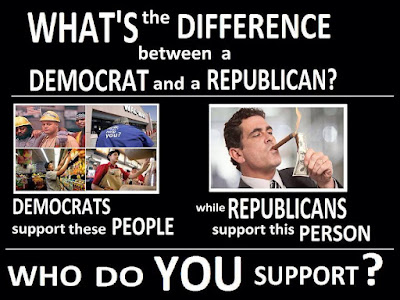
The business owners whose blood, sweat, and tears—or at least their fancy, high-priced educations, family connections and access to venture capital—built this country, dammit were hellbent and determined to show American workers who was boss. This COVID-19 nonsense was not going to interfere with their profits any longer. It was time to take a stand.
So they all had their administrative assistants conference in their favorite state legislators, the same ones who helpfully passed legislation a few years back, keeping pesky unions out of their states. They called in their chits for all those campaign contributions to the governor. They called their Republican House reps and senators. Damn that Fauci, they complained. My business is hurting. No more lockdowns, no more of this “social distancing “crap. This state is going to open for business and I don’t want to hear another word about body counts or stressed hospitals. I need workers and I need them now. I paid for your damn campaigns, so do something!
And those state representatives and senators leapt into action. In a matter of a few weeks we saw state after state brimming with self-appointed medical experts in their legislatures, railing about the tyrannical mask mandates and business lockdowns. CEOs and white-collar professionals cracked their whips—many still from the comfort of their fine second homes and pools. And thus the support staff, the retail clerks and the service workers, many of whom who had once been adoringly lionized as “essential” at the outset of the COVID-19 pandemic, were told it was time to return to work. And for added good measure, Republican governors in those states cut off their unemployment aid. That’ll show them, they thought ...
But strangely enough, not all of those workers heeded the call. In fact, a good many of them quit.
As reported by Alyssa Fowers and Eli Rosenberg, writing for The Washington Post:
Kentucky, Idaho, South Dakota and Iowa reported the highest increases in the rates of workers who quit their jobs in August, according to a new glimpse of quit rates in the labor market released Friday.
The largest increase in the number of quitters happened in Georgia, with 35,000 more people leaving their jobs. Overall, the states with the highest rates of workers quitting their jobs were Georgia, Kentucky and Idaho.
As The Post points out, the interesting thing about this data is that service-sector jobs are most highly concentrated in urban areas. So why would people be quitting their jobs at such astronomical rates in such relatively rural states as Kentucky, South Dakota, Iowa and Idaho?
Fowers and Rosenberg offer a clue:
Employees quit or were hired at rates matching or exceeding the national average in the ten states with the highest rates of new infections that month: Alabama, Arkansas, Florida, Georgia, Kentucky, Louisiana, Mississippi, Oklahoma, South Carolina and Tennessee.
So the highest rate of turnover in August—employees quitting or getting hired—was found in the states which had the highest rate of COVID-19 infection for that month. Logically, that seems to make sense. Workers who live in one of those states were also likely to have a governor or, in the case of Kentucky, a Republican-dominated legislature who opposed business closures, even while the delta variant ravaged the state’s population. Such workers were essentially forced by these states policies to return to work if they could not work from home.
Those people forced back to work in an unsafe environment simply decided to quit—many of them likely before ever venturing back into their workspace. After all, they saw a job the other day that was offering more money. Or their next-door neighbor’s cousin got a job that pays more and allows them to work from home. The Post article quotes Nick Bunker, an economist for the job search portal Indeed, who notes that the high quit rate in these red and rural states “may be a sign there’s more competition in those parts of the country than other parts.”
The other interesting point about all of the states having both the highest level of turnover and the highest infection rates? They are all so-called “right to work” states, where legislatures passed legislation to disincentivize and discourage unions. So these workers have essentially no protection, no one to turn to for help remedying unsafe conditions, and no collective bargaining power; they can, for the most part, be terminated at will. That’s what “right-to work” has always been about.
As one commenter to The Post story points out:
So, when you have a crappy job, for crappy wages, and a crappy employer who doesn't value you at all, and all of a sudden you find yourself in a labor market situation that actually encourages you to look for work elsewhere--what do you think is going to happen?The 'Great Resignation' is largely about working class people attempting to use what little leverage they have in order to make a moderately better wage for themselves in a mostly hostile, oppressive national work environment.
For employers, the downside of “right to work”— one they never saw coming—was the fact that workers in those states had little, if any, incentive to stay, especially when once-in-a lifetime opportunities arose for them to leave, while competition for higher wages and better working conditions further drove that exodus.
Some employers are responding by antagonizing would-be applicants.
In Missouri, a group of businesses, still frustrated by labor shortages more than three months after the state cut off the $300-a-week federal jobless checks, paid for billboards in Springfield that said: “Get Off Your Butt!” and “Get. To. Work.”
The state has seen no growth in its workforce since ending emergency benefits.
“We don’t know where people are,” said Brad Parke, general manager of Greek Corner Screen Printing and Embroidery, who helped pay for the billboards. “Obviously, they’re not at work. Apparently, they’re at home.”
The attempt to force workers back to dangerous, unsafe pandemic working conditions—brought on by short-sighted Republican policymakers for political ends—has collided with a culture where workplace protections and the ability to bargain have been completely devalued (also by Republican politicians), leaving workers as essentially dispensable commodities.
No wonder they’re quitting for greener pastures in those states. Republican elected officials and their business donors in those same states have no one to blame but themselves. They created this environment, and now they’re going to have to cope and adjust with workers who want more out of their jobs … and know they can get it. They have to keep up and do better, or see their businesses go under.
Funny how that worked out.
Republicans love to shout "SOCIALISM" when they see this slogan instead of taking a little blame for their own greed and cruelty.















